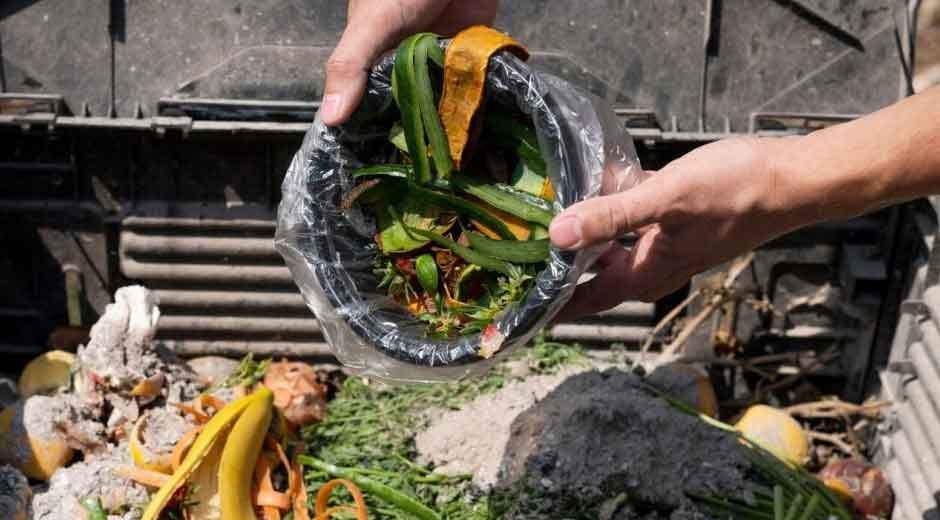Garden waste seems harmless, yet when neglected, it can pile up quickly, spoil the view, and harm the environment. Managing it thoughtfully keeps outdoor spaces tidy and nature thriving.
With a little awareness and steady care, every gardener can turn discarded clippings into something truly valuable.
Know the Local Rules Before You Start
The first step is understanding your local council’s guidance on garden waste disposal.
Each council in the UK sets its own rules to protect wildlife, prevent pollution, and keep neighbourhoods clean. Some offer weekly or fortnightly collections of green bins, while others expect residents to take their waste to designated recycling centres.
You can check your local authority’s website for schedules and approved containers.
Councils often provide clear information on what counts as garden waste. Grass cuttings, hedge trimmings, weeds, leaves, and flowers are generally accepted. However, plant pots, treated wood, soil, and stones aren’t considered garden waste.
Following these rules avoids contamination that can spoil entire loads of recyclable material. It also prevents fines, as burning or dumping waste in the wrong place breaches environmental regulations.
For gardeners living in rural areas, local community composting schemes or shared collection points may be available. These programmes reduce landfill pressure and help build a sense of cooperation within villages and towns.
By keeping to local guidelines, you not only protect nature but also support a cleaner, safer community.
Compost Your Cuttings for a Healthier Garden
Composting is one of the most natural ways to handle garden waste. It transforms leaves, grass, and trimmings into nutrient-rich matter that nourishes the soil.
The process mirrors what happens in a forest, where fallen foliage breaks down to feed new growth. Home composting keeps materials out of landfill and rewards you with free fertiliser for your beds and borders.
To begin, choose a sheltered spot with good drainage and some shade. You can buy a compost bin or build one from wooden pallets.
Start by layering brown materials like twigs and dry leaves, then add green material such as vegetable scraps or fresh cuttings from your kitchen.
Keep the pile damp but never waterlogged, and turn it every few weeks to let in air. The heat produced as it breaks down is a sure sign the process is working.
In a few months, you’ll notice a soft, earthy scent and a dark, crumbly texture. That’s your finished compost, ready to spread across flower beds or mix into pots.
It’ll improve the soil’s structure, encourage beneficial insects, and reduce your need for chemical fertilisers. Even a small compost corner can make a big difference to your garden’s vitality.
Shred and Mulch to Protect the Soil
Mulching is another excellent way to reuse garden debris while caring for the soil.
A mulcher or shredder turns hedge cuttings and branches into fine pieces that rest gently over the soil, forming a natural layer of protection.
This mulch helps the ground retain moisture, suppresses weeds, and keeps the soil’s temperature steady throughout the changing seasons.
For smaller gardens, an electric shredder is usually enough to handle prunings and soft vegetation. Larger gardens may benefit from petrol models, which can manage thicker branches.
Once shredded, spread the material evenly beneath trees, shrubs, and around borders, leaving a small gap near the plant stems to prevent rot.
The benefits become clear as the months pass. You’ll notice the ground stays damp longer after rain and the need for constant watering drops. Over time, the mulch breaks down naturally, improving the soil’s texture and supporting worms and microbes.
This method saves money, reduces waste, and makes the garden look neat and well cared for.
Keep a Clear Waste Routine Year-Round
A little planning goes a long way in keeping waste manageable.
Think about how much material your garden produces through the seasons. Spring and summer bring rapid growth, while autumn fills the lawn with fallen leaves. Establishing a simple rhythm for collecting, composting, and clearing helps prevent overwhelming build-ups.
Set aside one corner for composting and another for stored trimmings awaiting disposal. Use sturdy containers or bins to separate types of waste so you can deal with each appropriately.
Clearing smaller loads more often is easier than tackling mountains of debris at once. It also keeps your outdoor space welcoming throughout the year.
If your garden is large or you are short on time, consider hiring local help or arranging a shared collection with your neighbours. Consistency is key—regular upkeep keeps your soil healthier, your beds tidier, and your workload lighter as the seasons roll by.
Try Vermiculture for Nutrient-Rich Compost
For those with limited outdoor space, worm composting (known as vermiculture) offers a compact alternative.
Red wigglers, a type of composting worm, break down organic waste quickly to produce castings rich in nutrients. These can be used just like standard compost but are often more concentrated and beneficial for plant growth.
Start by setting up a small ventilated box lined with damp newspaper. Add soil and a few handfuls of garden waste, and introduce the worms.
Keep the environment moist and feed them small amounts regularly—avoiding citrus, meat, or oily foods. Within a few weeks, you’ll have a supply of dark, fine compost that plants adore.
This method suits balconies, patios, and small sheds, giving urban gardeners a way to recycle naturally. It’s an educational process too, showing how even the smallest creatures play an essential role in maintaining the balance of life in the garden.
Choose Responsible Disposal or Specialist Help
If composting isn’t possible or you’re dealing with large volumes, your council’s garden waste collection is the simplest solution.
These schemes take green waste to dedicated facilities where it’s shredded, composted, and reused as soil conditioner or renewable energy feedstock. Registration is straightforward and often available through the council’s website.
When materials can’t be reused or composted, hiring a professional garden waste removal service is a practical choice. Reputable companies adhere to environmental guidelines and guarantee the safe processing of your waste.
Sharing costs with neighbours can make this option even more affordable.
Burning should only ever be a last resort. The UK’s Environmental Protection Act makes it an offence to burn waste in a way that causes smoke, pollution, or inconvenience to others.
If you must burn small amounts, choose a calm, dry day, use only dry vegetation, and keep water or sand nearby. Always check that hedgehogs or other wildlife aren’t sheltering in the pile before lighting it.
Conclusion
A well-tended garden gives back what you put into it. Managing its waste responsibly enriches the soil, protects wildlife, and keeps your surroundings beautiful.
With steady effort and respect for the land, every gardener can play a small but vital role in preserving Britain’s green spaces for years to come.

